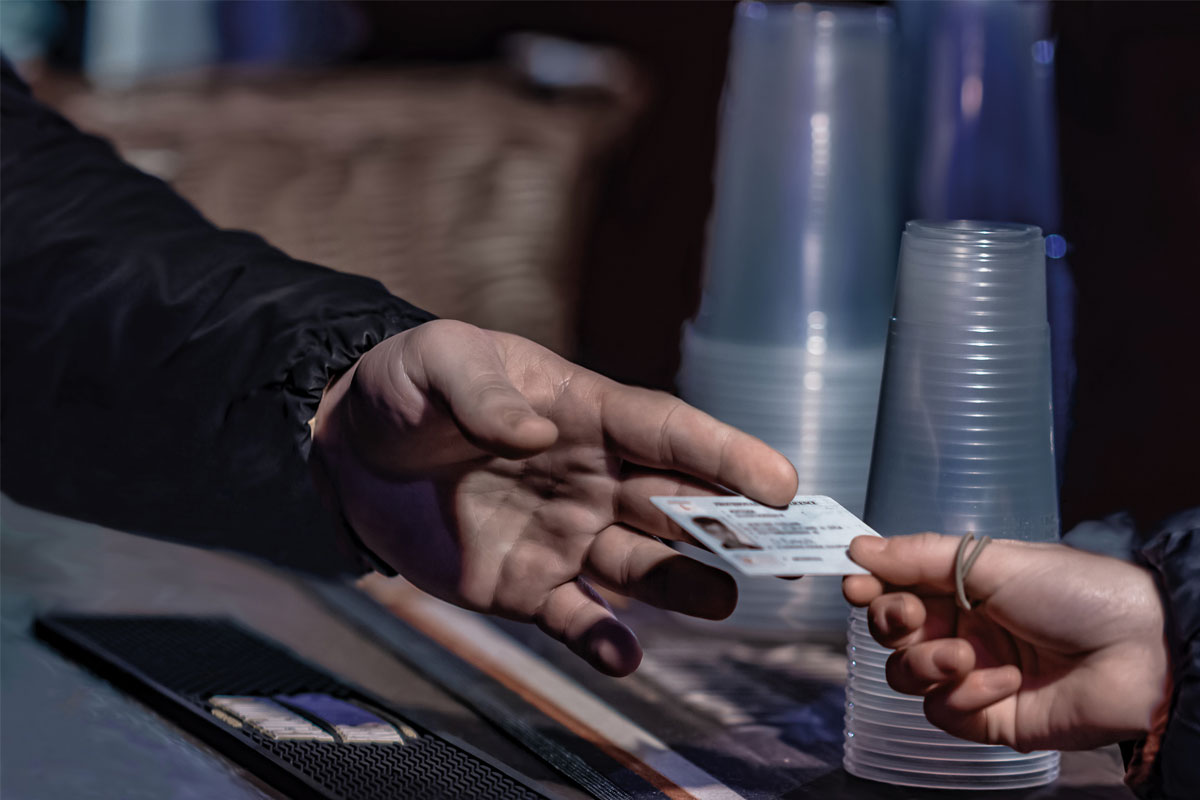Licensing Act requires all premises to operate verification policy

By Jack Cummins
“RETAIL giants set to trial facial recognition age checks” –it’s an eye-catching headline particularly for those with an interest in responsible alcohol retailing.
But what’s the whole story?
In a move to cut down queues at self-service checkouts “biometric age estimation software” will assess a customer’s age when an age-restricted product is scanned.
Of course, as matters stand, the age verification is carried out by a checkout supervisor.
That procedure will continue during the trial alongside the artificial intelligence assessment – but if the system is ultimately rolled out there will be a saving in staff costs. It’s also claimed the technology could be beneficial to customers not carrying forms of ID, as well as staff having to deal with abuse from customers where a sale is declined.
Data protection concerns will be addressed by the deletion of the image capture as soon as the age verification has taken place.
I’m not in a position to analyse the licensing implications south of the border, but the Scottish position is clear.
The Licensing (Scotland) Act 2005 provides that all licensed premises must operate an age-verification policy for both on- and off-sales.
That is, “a policy that steps are to be taken to establish the age of a person attempting to buy alcohol on the premises… if it appears to the person selling the alcohol that the customer may be less than 25 years of age (or such older age as may be specified in the policy).”
Can you see the problem?
The age check has to be carried out by a real person – and that’s plainly the stumbling block when it comes to the use of software.
There’s just one exception to the policy requirement. It’s disapplied in the case of so-called “remote sales” – online, telephone and mail order transactions – where the customer and seller are not face-to-face.
You might think that the 2005 Act requires an age check at the point of delivery.
Curiously, that’s not the case although it is of course an offence to deliver alcohol to a person under the age of 18.
That said, many licensing boards fill the gap by adding a licence condition requiring the operation of ‘Challenge 25’ on the doorstep – a vital precaution in any event.
The age-verification policy need not be set out in writing but in my view that’s an essential step.
It ought to make it clear that, where the customer looks under 25, the sale (or delivery) must be refused unless he or she is able to produce one of the following documents: (1) a passport; (2) a UK driving licence; (3) an EU photocard driving licence; (4) a Ministry of Defence Form 90 identity card; (5) a photographic identity card bearing the national Proof of Age Standards Scheme (“PASS”) hologram; (6) a national identity card issued by an EU member state, Norway, Iceland, Liechtenstein or Switzerland; and (6) a Biometric Immigration Document.
Production of any of these documents serves as a defence if an underage sale (or delivery) is in fact made provided that the document “would have convinced a reasonable person”.
All employees selling alcohol should sign a copy of the policy acknowledging that it has been understood and will be implemented in practice.
I reckon it’s also a good idea to issue regular reminders about the importance of the policy and assure staff that management will always back their judgement call where a sale is blocked: “You say ‘No’, we say ‘No’”, as one major retailer tells its staff.
In the event that a prosecution arises from an underage sale, the 2005 Act’s “vicarious liability” provisions apply.
Criminal proceedings can be taken against the premises licence holder as well as the person selling the alcohol; and, of course, a conviction for the offence will inevitably lead to a review of the licence.
However, the licence holder has available the defence that “all due diligence” was used to prevent its commission.
Being able to demonstrate the effective operation of the age verification procedure is an important element of that defence.



















